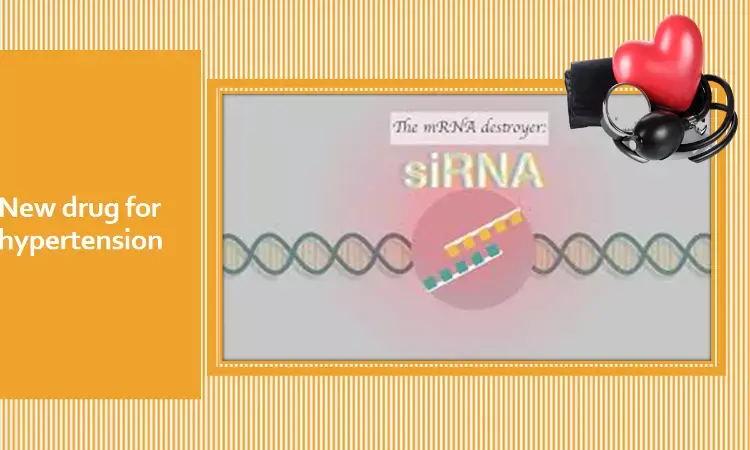- Home
- Medical news & Guidelines
- Anesthesiology
- Cardiology and CTVS
- Critical Care
- Dentistry
- Dermatology
- Diabetes and Endocrinology
- ENT
- Gastroenterology
- Medicine
- Nephrology
- Neurology
- Obstretics-Gynaecology
- Oncology
- Ophthalmology
- Orthopaedics
- Pediatrics-Neonatology
- Psychiatry
- Pulmonology
- Radiology
- Surgery
- Urology
- Laboratory Medicine
- Diet
- Nursing
- Paramedical
- Physiotherapy
- Health news
- Fact Check
- Bone Health Fact Check
- Brain Health Fact Check
- Cancer Related Fact Check
- Child Care Fact Check
- Dental and oral health fact check
- Diabetes and metabolic health fact check
- Diet and Nutrition Fact Check
- Eye and ENT Care Fact Check
- Fitness fact check
- Gut health fact check
- Heart health fact check
- Kidney health fact check
- Medical education fact check
- Men's health fact check
- Respiratory fact check
- Skin and hair care fact check
- Vaccine and Immunization fact check
- Women's health fact check
- AYUSH
- State News
- Andaman and Nicobar Islands
- Andhra Pradesh
- Arunachal Pradesh
- Assam
- Bihar
- Chandigarh
- Chattisgarh
- Dadra and Nagar Haveli
- Daman and Diu
- Delhi
- Goa
- Gujarat
- Haryana
- Himachal Pradesh
- Jammu & Kashmir
- Jharkhand
- Karnataka
- Kerala
- Ladakh
- Lakshadweep
- Madhya Pradesh
- Maharashtra
- Manipur
- Meghalaya
- Mizoram
- Nagaland
- Odisha
- Puducherry
- Punjab
- Rajasthan
- Sikkim
- Tamil Nadu
- Telangana
- Tripura
- Uttar Pradesh
- Uttrakhand
- West Bengal
- Medical Education
- Industry
Novel si-RNA agent Zilebesiran shows promise in hypertension management, NEJM study.

Hypertension is inadequately controlled in about three-fourths of patients taking currently available therapies. The reasons for this are multifactorial and relate in part to the fact that available antihypertensive drugs may not target pathways that regulate blood pressure in a disease- or mechanism-specific manner. Taking forward the quest for target specific therapies, a recent research by Desai et al has shown the effectiveness of Zilebesiran, a small interfering RNA (si-RNA) in controlling hypertension. The results of this study were recently published in NEJM.
Why present drugs are not universally effective?
Mortality due to hypertension has increased by more than 30% since the 1990s, and the prevalence of hypertension in low-to-middle-income counties continues to rise. It is estimated that more than 10% of patients with hypertension have resistance to current antihypertensive drugs. The renin–angiotensin system, which plays a key role in the long-term control of blood pressure and is a major target for antihypertensive treatment.
Although the clinical benefits of ACE inhibitors and ARBs that block this pathway are clear, the relative risk reduction for cardiovascular events is less than the residual risk with long-term use of these drugs. Moreover, long-term blockade of the renin–angiotensin system leads to a compensatory increase in renin levels (an escape phenomenon).
Mechanism of si-RNA:
Zilebesiran is a first-in-class siRNA therapeutic that post-transcriptionally silences hepatic AGT expression, which leads to decreased production of angiotensinogen protein, suppressed synthesis of angiotensin I and angiotensin II, and consequent blood-pressure lowering.
Present study:
In this phase 1 study, patients with hypertension were randomly assigned in a 2:1 ratio to receive either a single ascending subcutaneous dose of zilebesiran (10, 25, 50, 100, 200, 400, or 800 mg) or placebo and were followed for 24 weeks (Part A). Part B assessed the effect of the 800-mg dose of zilebesiran on blood pressure under low- or high-salt diet conditions, and Part E the effect of that dose when coadministered with irbesartan.
End points included safety, pharmacokinetic and pharmacodynamic characteristics, and the change from baseline in systolic and diastolic blood pressure, as measured by 24-hour ambulatory blood-pressure monitoring.
In Part A, patients receiving zilebesiran had decreases in serum angiotensinogen levels that were correlated with the administered dose. Single doses of zilebesiran (≥200 mg) were associated with decreases in systolic blood pressure (>10 mm Hg) and diastolic blood pressure (>5 mm Hg) by week 8; these changes were consistent throughout the diurnal cycle and were sustained at 24 weeks.
Results from Parts B and E were consistent with attenuation of the effect on blood pressure by a high-salt diet and with an augmented effect through coadministration with irbesartan, respectively.
Thus dose-dependent decreases in serum angiotensinogen levels and 24-hour ambulatory blood pressure were sustained for up to 24 weeks after a single subcutaneous dose of zilebesiran of 200 mg or more.
“Angiotensinogen suppression in the liver by siRNA is a novel and exciting means of targeting the renin–angiotensin system: it offers specificity, long-term efficacy, and sustained blood-pressure lowering. Although zilebesiran offers new possibilities as an antihypertensive agent, it may also have therapeutic benefit in other conditions associated with activation of the renin–angiotensin system, such as kidney and heart disease”, noted Rhian M. Touyz, M.B., B.Ch., Ph.D. in an accompanying editorial.
NEJM:
1. DOI: 10.1056/NEJMoa2208391
2. DOI: 10.1056/NEJMe2303534
MBBS, MD , DM Cardiology
Dr Abhimanyu Uppal completed his M. B. B. S and M. D. in internal medicine from the SMS Medical College in Jaipur. He got selected for D. M. Cardiology course in the prestigious G. B. Pant Institute, New Delhi in 2017. After completing his D. M. Degree he continues to work as Post DM senior resident in G. B. pant hospital. He is actively involved in various research activities of the department and has assisted and performed a multitude of cardiac procedures under the guidance of esteemed faculty of this Institute. He can be contacted at editorial@medicaldialogues.in.
Dr Kamal Kant Kohli-MBBS, DTCD- a chest specialist with more than 30 years of practice and a flair for writing clinical articles, Dr Kamal Kant Kohli joined Medical Dialogues as a Chief Editor of Medical News. Besides writing articles, as an editor, he proofreads and verifies all the medical content published on Medical Dialogues including those coming from journals, studies,medical conferences,guidelines etc. Email: drkohli@medicaldialogues.in. Contact no. 011-43720751


